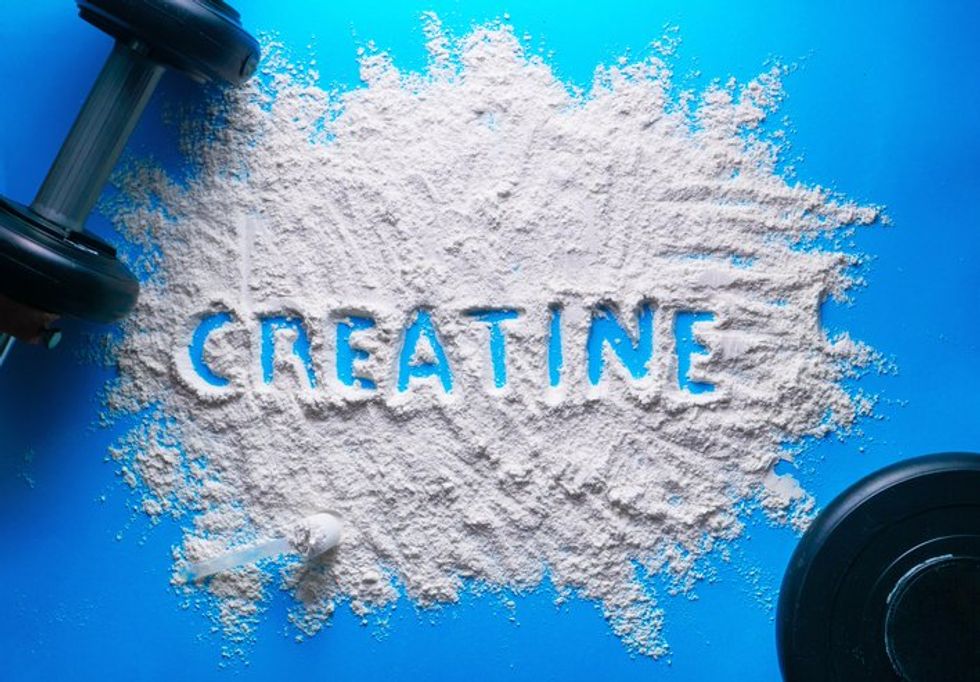6 Crucial Vitamin and Supplement Combinations
Some things just go better together — and that includes certain vitamins and minerals. Whether you want to get more from your supplements or plan a more balanced plate, pairing complementary vitamins and minerals is a win for your health.
“Certain nutrients work synergistically, meaning one helps the other absorb more efficiently in the body,” says Nicholas Church, M.D., a board-certified family medicine physician and founder of Somerset Medical. “In my 24 years of practicing medicine, I’ve seen how simple adjustments — like combining the right nutrients — can lead to improved lab results and long-term health benefits.”
Another potential perk? Saving on supplements, says Will Cole, I.F.M.C.P., D.N.M., D.C., a leading functional medicine expert and best-selling author. “Understanding synergistic relationships allows you to maximize nutritional benefits while using fewer supplements,” says Cole. “Rather than taking random supplements, this knowledge can help you support your wellbeing in a more intentional and effective way.”
Ahead, experts share the dynamic duos that can give your health a boost.
Vitamin D and calcium
You may already associate vitamin D and calcium with healthy bones. Here’s a lesser-known connection: Vitamin D is crucial for calcium absorption in the gut.
“Without sufficient vitamin D, you might absorb only about 10 to 15% of the calcium you eat, compared to roughly 30 to 40% absorption with adequate vitamin D levels,” says Dr. Church. “I recommend pairing calcium-rich foods or supplements with vitamin D, or ensuring you have enough vitamin D overall so that calcium is effectively absorbed into the body.”
Vitamin B6 and magnesium
Magnesium is essential for many metabolic processes, from regulating muscle and nerve function to blood sugar levels. Vitamin B6 provides essential support, helping to improve the absorption of magnesium in your intestines.
“Vitamin B6 helps more magnesium enter into your bloodstream,” explains Cole. “What’s more, magnesium plays a role in activating vitamin B6 into its useful form in the body. Whether patients are taking magnesium for muscle health or sleep, I often recommend taking it with a B6 source, so that each nutrient can boost the other’s effectiveness.” As an added perk, research shows that magnesium and vitamin B6 can help relieve stress when taken together.
Vitamin C and iron
Iron is an important nutrient for healthy blood, and vitamin C plays a significant role in helping your body absorb it. You can call them a power couple: Research shows that pairing these nutrients in a meal together is more effective than eating them separately. This same synergistic effect applies if you’re taking iron supplements.
“If you consume iron-rich foods or an iron supplement alongside a source of vitamin C — like a glass or orange juice — it helps convert iron into a form that’s easier for your body to absorb,” explains Dr. Church. “This pairing is especially beneficial to vegetarians or anyone looking to naturally improve their iron levels.”
Vitamin A and zinc
Vitamin A supports your vision, skin health, immune system and more — but it depends on zinc to do its job. Zinc deficiency lowers the bioavailability of vitamin A, and because these deficiencies tend to occur at the same time, it’s a smart move to combine these nutrients.
“I’ve seen firsthand that vitamin A, whether from foods like carrots or supplements, doesn’t get processed as efficiently when people are low in zinc,” says Dr. Church. “Ensuring you get enough zinc from zinc-rich foods, like beans or shellfish, when you’re also eating vitamin A-rich foods helps these nutrients work together so vitamin A can be effectively absorbed and transported in the body.”
Vitamin E and selenium
Antioxidants are molecules that protect your cells from damage — and together, they’re even more powerful. Vitamin E and selenium are a prime example of complementary antioxidants that make an excellent team. Selenium has the ability to help “recycle” vitamin E in your body, bringing it back to its active form to fight even more free radicals.
“By getting both nutrients — for instance, eating selenium-rich Brazil nuts along with vitamin E-rich almonds or spinach — you enhance the antioxidant impact,” says Dr. Church.
Vitamin D, vitamin K2 and vitamin A
Talk about a triple threat: This fat-soluble vitamin trio works synergistically to support bone health, immune function and proper calcium utilization. Together, vitamin D, vitamin K, and vitamin A help ensure that your body functions at its best.
“Vitamin K2 helps direct calcium to bones rather than soft tissues when vitamin D increases calcium absorption, while vitamin A balances the immune-regulating properties of vitamin D,” says Dr. Cole.
Vitamins you shouldn’t mix
It’s also important to remember that not all vitamins and minerals get along. Some nutrients actually counteract each other, which means spacing them out is a smarter approach. Some examples of vitamin combinations to avoid include:
- Iron and calcium
- Iron and zinc
- Calcium and magnesium
- Vitamin B12 and Vitamin C
- Copper and zinc
The bottom line
Yes, certain nutrients can supercharge the healthy powers of other nutrients when you take them together. But ultimately, synergy is more than just pairing the right nutrients — timing, balance and individual needs matter, too. Always talk to your healthcare provider before adding potential supplements to your routine to make sure they’re safe and effective for you.

Kristen F. Gradney, M.H.A., R.D.N., L.D.N. is a registered dietitian nutritionist and healthcare administrator in Baton Rouge, LA. As Senior Director of Operations at Our Lady of the Lake Regional Medical Center, she supports health equity and holistic healthcare in schools, community, and medical practices. She also owns Tableau Consulting Services, LLC. and has been featured in many publications as expert on many topics including nutrition, wellness, and health equity. She strives to create culturally relevant, systematic changes that improve healthcare of individuals and communities. Gradney obtained a B.A. in Sociology in 2001, and a B.S. in Nutritional Science, in 2007, from Louisiana State University. She then completed a dietetic internship at the Medical University of South Carolina, Charleston, South Carolina, and has worked as a registered dietitian in areas of inpatient and ambulatory care, culinary medicine, transplant, and pediatric wellness. In 2016, she obtained a Master of Health Administration from Our Lady of the Lake College in Baton Rouge.
Source link
Share this article:













